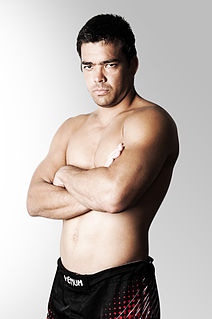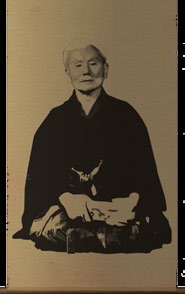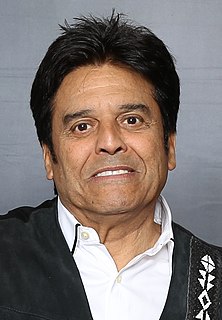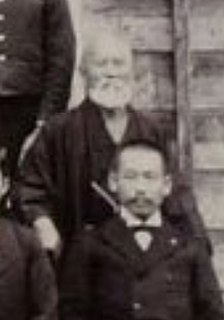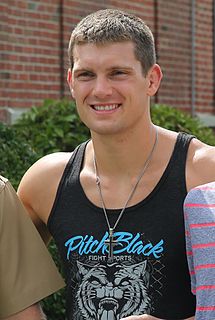A Quote by Lyoto Machida
The main thing Karate offers to me is a philosophy of life. The philosophy of Karate is respect and discipline. You give 100% of whatever you do, in every activity.
Quote Topics
Related Quotes
My father was a very tough guy with me and my brothers. He wanted to teach us a lot of discipline and life philosophy. As I became more interested in martial arts, he started teaching a lot of fighting philosophy and karate philosophy. While he was a tough father, he also knew when to be sweet and show a softer side.
Karate cannot be adequately learned in a short space of time. Like a torpid bull, regardless of how slowly it moves, it will eventually cover a thousand miles. So too, for one who resolves to study Karate diligently two or three hours every day. After three or four years of unremitting effort one's body will undergo a great transformation revealing the very essence of Karate.
Hoping to see karate included in the universal physical education taught in our public schools, I set about revising the kata so as to make them as simple as possible. Times change, the world changes, and obviously the martial arts must change too. The karate that high school students practice today is not the same karate that was practiced even as recently as ten years ago [this book was written in 1956], and it is a long way indeed from the karate I learned when I was a child in Okinawa.
Philosophy - reduced, as we have seen, to philosophical discourse - develops from this point on in a different atmosphere and environment from that of ancient philosophy. In modern university philosophy, philosophy is obviously no longer a way of life, or a form of life - unless it be the form of life of a professor of philosophy.
Philosophy aims at the logical clarification of thoughts. Philosophy is not a body of doctrine but an activity. A philosophical work consists essentially of elucidations. Philosophy does not result in 'philosophical propositions', but rather in the clarification of propositions. Without philosophy thoughts are, as it were, cloudy and indistinct: its task is to make them clear and to give them sharp boundaries.
